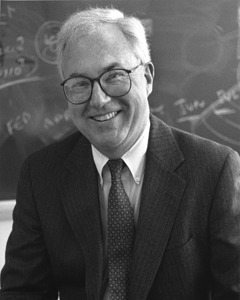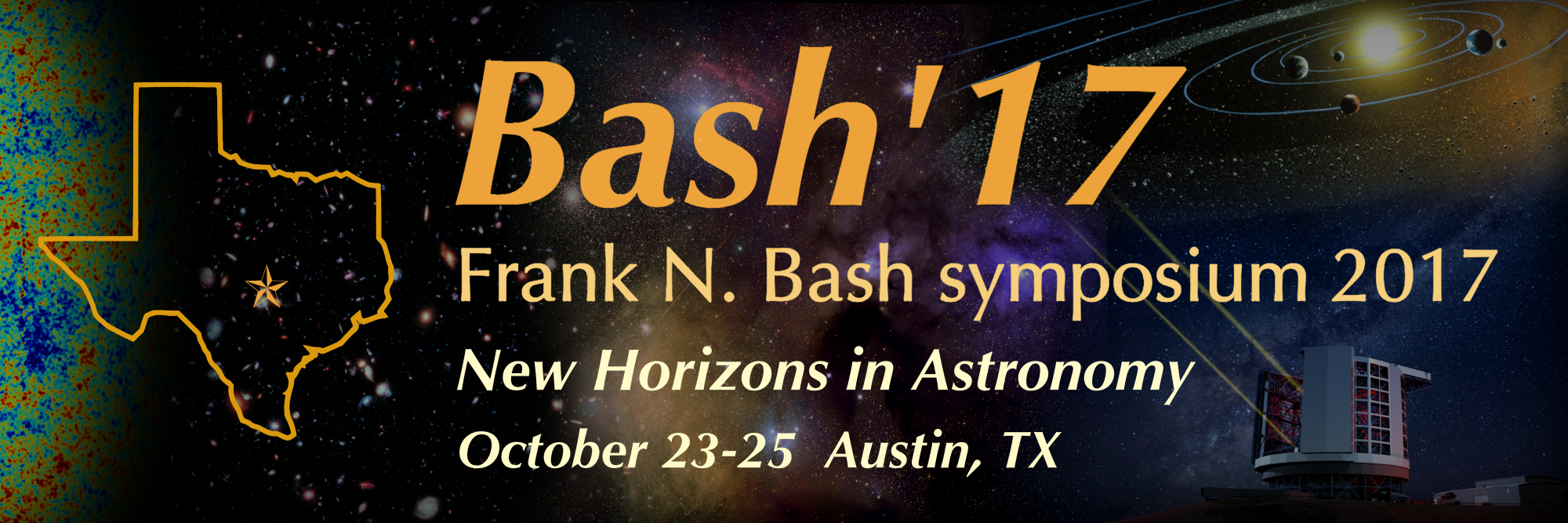Frank N. Bash Symposium 2017
The University of Texas at Austin Department of Astronomy and McDonald Observatory will be hosting the sixth biennial Frank N. Bash Symposium on the topic of New Horizons in Astronomy, October 23-25, 2017, in the Avaya Auditorium, POB 2.302 [map] on The University of Texas at Austin campus. This meeting will bring together young researchers at the cutting edge of astronomy and astrophysics, to promote the exchange of research ideas and visions for the future of astronomy. The symposium will focus on invited review talks, and will include discussions and contributed poster papers from postdocs and students.
The Frank N. Bash Symposium 2017 is made possible by the generous contributions of The University of Texas at Austin McDonald Observatory and Department of Astronomy Board of Visitors.

Contact
If you have questions about Bash Symposium 2017, please email us.
Organizing Committee
Chao-Ling Hung (chair), Aaron Rizzuto (chair), Brendan Bowler, Brandon Bozek, Fabíola Campos, Briana Indahl, Andrew Mann, Raquel Martinez, Kim Sokal, Isak Wold, Greg Zeimann
| Frank N. Bash, Ph.D., served as director of McDonald Observatory from 1989-2003. A native of Medford, Oregon, Bash earned his bachelor's degree from Willamette University in Salem, Oregon; his master's degree in astronomy from Harvard University; and his doctorate from the University of Virginia. A well-known and widely published specialist in radio astronomy, Dr. Bash's research interests include large-scale formation processes in spiral galaxies. Dr. Bash joined the faculty of the University of Texas at Austin in 1969. Serving as Chairman of the Astronomy Department from 1982 through 1986, in 1985 he was named the Frank N. Edmonds Regents Professor. Among numerous awards for quality teaching, he was named to the teaching excellence Hall of Fame at UT Austin in 1984. As Director of McDonald, Dr. Bash led the effort for design, funding, and construction of the Hobby-Eberly Telescope. Dr. Bash also led the effort to expand the public-outreach programs of the Observatory. These programs include the Observatory's Visitors Center, which hosts approximately 60,000 visitors per year, and StarDate radio, which reaches millions of people each day in English, Spanish, and German. |

|
